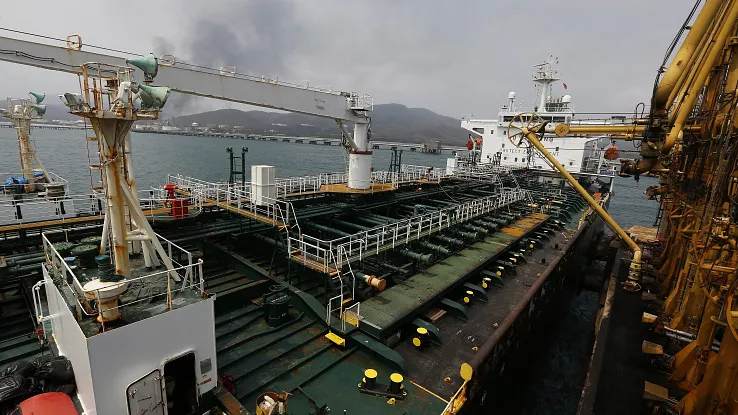World
Israeli Threats on Iran’s Oil Infrastructure Trigger Surge in Oil Prices

Tensions rise as Israeli threats targeting Iran’s oil infrastructure push global oil prices higher. Get insights into the geopolitical conflict and its impact on the energy market.
Israel’s warning to target Iran’s oil production infrastructure, such as gas and oil rigs, refineries, and storage facilities, has intensified market concerns.
Iran ranks within the world’s top 10 oil producers, reaching a production level of 3.277 million barrels per day in August this year, as stated in the monthly report by the Organization of the Petroleum Exporting Countries.
In Wednesday morning trading, light crude oil futures for November delivery on the New York Mercantile Exchange hit $72.13 per barrel, while London Brent Crude Oil Futures for December delivery climbed to $75.74 per barrel.
On Tuesday, during the U.S. trading session, international oil prices climbed by more than 5 percent to hit an intraday peak but later eased as market sentiment gradually stabilized.
“According to Sara Vakhshouri, the president of SVB Energy International, energy facilities and critical infrastructures might also be targeted. The future direction of prices is contingent on the location and extent of any destruction as well as how much oil could potentially be removed from the market.”
READ ALSO: Israeli Jets Launch Airstrikes on Lebanon Targets – IDF Releases Video
Historically, we have observed that if geopolitical factors do not have a large-scale impact and can be mitigated, their effect is generally not significant.
Global oil prices are under significant pressure due to an oversupply and weak demand. A number of Wall Street investment banks, such as Goldman Sachs and Morgan Stanley, have reduced their long-term forecasts for oil prices. Additionally, Citigroup has predicted that by 2025, oil prices could decrease to approximately 60 dollars per barrel.
Following Israel’s assassination of Iranian allies on its own soil and in Lebanon, Tehran launched a barrage of missiles into Israel, claiming they were aimed at military facilities.
Israeli media stated that the military censor prohibited the publication of specific impact locations.
